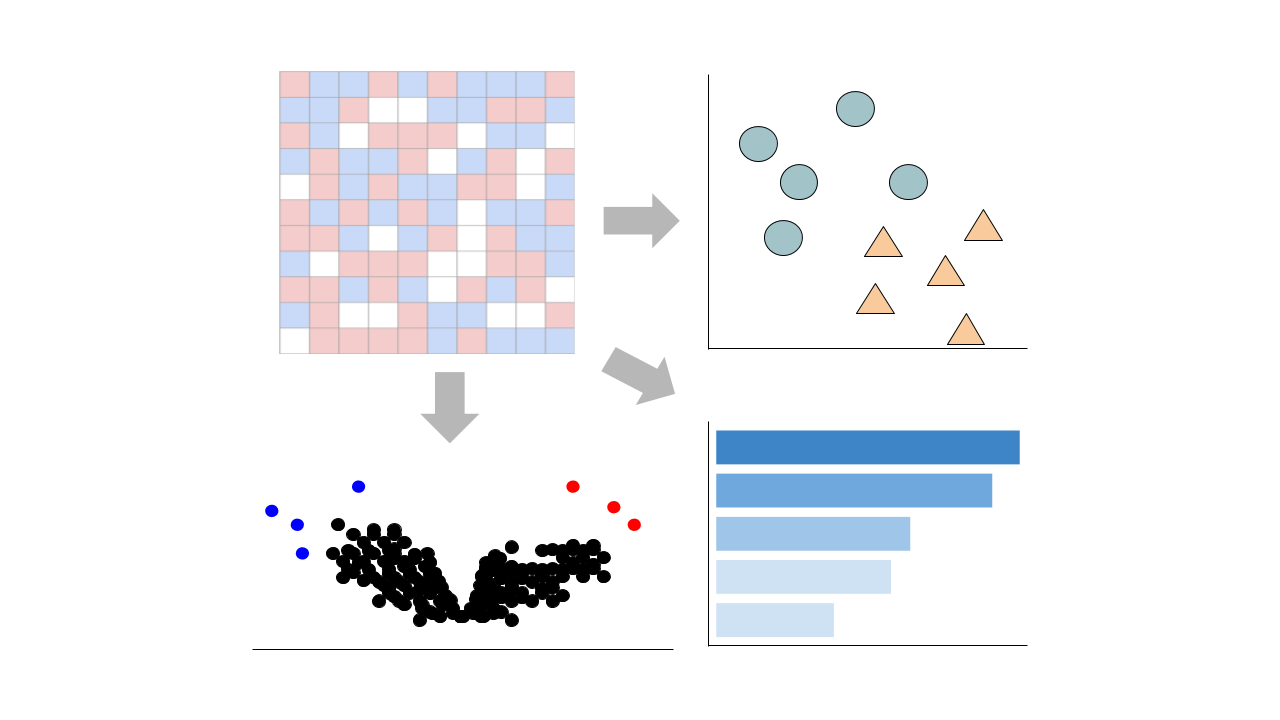 Gene counts are sourced from ARCHS4, which provides uniform alignment of GEO samples.
You can learn more about ARCHS4 and its pipeline here.
Gene counts are sourced from ARCHS4, which provides uniform alignment of GEO samples.
You can learn more about ARCHS4 and its pipeline here.
Select conditions below to toggle them from the plot:
| GROUP | CONDITION | SAMPLES |
|---|---|---|
| peripheral blood |
GSM5576766 GSM5576767 GSM5576768 GSM5576769 GSM5576770 GSM5576771 GSM5576772 GSM5576773 GSM5576774 GSM5576775 GSM5576776 GSM5576777 GSM5576778 GSM5576779 GSM5576780 GSM5576781 GSM5576782 GSM5576783 GSM5576784 GSM5576785 GSM5576786 GSM5576787 GSM5576788 GSM5576789 GSM5576790 GSM5576791 GSM5576792 GSM5576793 GSM5576794 GSM5576795 GSM5576796 GSM5576797 GSM5576798 GSM5576799 GSM5576800 GSM5576801 GSM5576802 GSM5576803 GSM5576804 GSM5576805 GSM5576806 GSM5576807 GSM5576808 GSM5576809 GSM5576810 GSM5576811 GSM5576812 GSM5576813 GSM5576814 GSM5576815 GSM5576816 GSM5576817 GSM5576818 GSM5576819 GSM5576820 GSM5576821 GSM5576822 GSM5576823 GSM5576824 GSM5576825 GSM5576826 GSM5576827 GSM5576828 GSM5576829 GSM5576830 GSM5576831
|
|
|
GSM5576716 GSM5576717 GSM5576718 GSM5576719 GSM5576720 GSM5576721 GSM5576722 GSM5576723 GSM5576724 GSM5576725 GSM5576726 GSM5576727 GSM5576728 GSM5576729 GSM5576730 GSM5576731 GSM5576732 GSM5576733 GSM5576734 GSM5576735 GSM5576736 GSM5576737 GSM5576738 GSM5576739 GSM5576740 GSM5576741 GSM5576742 GSM5576743 GSM5576744 GSM5576745 GSM5576746 GSM5576747 GSM5576748 GSM5576749 GSM5576750 GSM5576751 GSM5576752 GSM5576753 GSM5576754 GSM5576755 GSM5576756 GSM5576757 GSM5576758 GSM5576759 GSM5576760 GSM5576761 GSM5576762 GSM5576763 GSM5576764 GSM5576765
|
Submission Date: Sep 13, 2021
Summary: Type 2 diabetes is a complex, systemic disease affected by both genetic and environmental factors. Previous research has identified genetic variants associated with type 2 diabetes risk, however gene regulatory changes underlying progression to disease are still largely unknown. We investigated RNA expression changes that occur during diabetes progression using a two-stage approach. In our discovery stage, we compared changes in gene expression using two longitudinally collected blood samples from subjects who transitioned to type 2 diabetes between the time points against those who did not with a novel analytical network approach. Our network methodology identified 17 networks, one of which was significantly associated with transition status. This 822-gene network harbors many genes novel to the type 2 diabetes literature, but is also significantly enriched for genes previously associated with type 2 diabetes in GWAS. In the validation stage, we queried associations of genetically determined expression with diabetes-related traits in a large biobank with linked electronic health records. We observed a significant enrichment of genes in our identified network whose genetically determined expression is associated with type 2 diabetes and other metabolic traits and validated 31 gene-level associations that have never been reported by previous type 2 diabetes GWAS. Finally, we performed functional validation, demonstrating that the genes in this network are enriched in enhancers that operate in human pancreatic islet cells. We present an innovative and systematic approach that identified and validated key gene expression changes associated with type 2 diabetes transition status and demonstrated their translational relevance in a large clinical resource.
GEO Accession ID: GSE184050
PMID: 35157052
Submission Date: Sep 13, 2021
Summary: Type 2 diabetes is a complex, systemic disease affected by both genetic and environmental factors. Previous research has identified genetic variants associated with type 2 diabetes risk, however gene regulatory changes underlying progression to disease are still largely unknown. We investigated RNA expression changes that occur during diabetes progression using a two-stage approach. In our discovery stage, we compared changes in gene expression using two longitudinally collected blood samples from subjects who transitioned to type 2 diabetes between the time points against those who did not with a novel analytical network approach. Our network methodology identified 17 networks, one of which was significantly associated with transition status. This 822-gene network harbors many genes novel to the type 2 diabetes literature, but is also significantly enriched for genes previously associated with type 2 diabetes in GWAS. In the validation stage, we queried associations of genetically determined expression with diabetes-related traits in a large biobank with linked electronic health records. We observed a significant enrichment of genes in our identified network whose genetically determined expression is associated with type 2 diabetes and other metabolic traits and validated 31 gene-level associations that have never been reported by previous type 2 diabetes GWAS. Finally, we performed functional validation, demonstrating that the genes in this network are enriched in enhancers that operate in human pancreatic islet cells. We present an innovative and systematic approach that identified and validated key gene expression changes associated with type 2 diabetes transition status and demonstrated their translational relevance in a large clinical resource.
GEO Accession ID: GSE184050
PMID: 35157052
Visualize Samples
 Visualizations are precomputed using the Python package scanpy on the top 5000 most variable genes.
Visualizations are precomputed using the Python package scanpy on the top 5000 most variable genes.
Precomputed Differential Gene Expression
 Differential expression signatures are automatically computed using the limma R package.
More options for differential expression are available to compute below.
Differential expression signatures are automatically computed using the limma R package.
More options for differential expression are available to compute below.
Signatures:
Select conditions:
Control Condition
Perturbation Condition
Only conditions with at least 1 replicate are available to select
 Differential expression signatures can be computed using DESeq2 or characteristic direction.
Differential expression signatures can be computed using DESeq2 or characteristic direction.
This pipeline enables you to analyze and visualize your bulk RNA sequencing datasets with an array of downstream analysis and visualization tools. The pipeline includes: PCA analysis, Clustergrammer interactive heatmap, library size analysis, differential gene expression analysis, enrichment analysis, and L1000 small molecule search.

 Chatbot
Chatbot Single Gene Queries
Single Gene Queries
 Gene Set Queries
Gene Set Queries
 Bulk Studies
Bulk Studies
 Single Cell Studies
Single Cell Studies
 Hypotheses
Hypotheses
 Resources
Resources
 Contribute
Contribute
 Downloads
Downloads About
About
 Help
Help